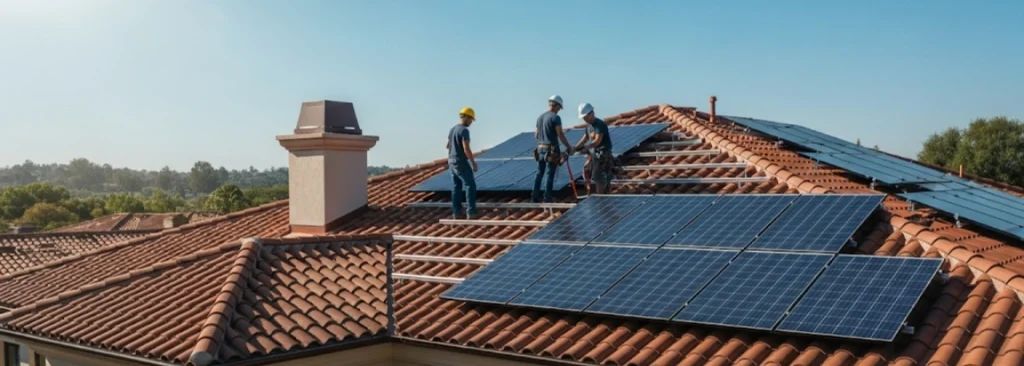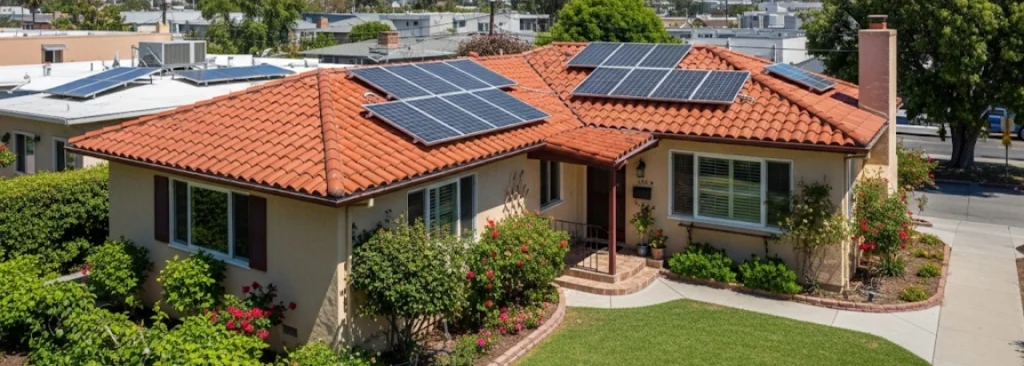Table of Contents
- Introduction: Solar Energy and Tax Benefits
- What is the Personal Income Tax deduction for solar panels?
- Requirements for accessing the personal income tax deduction for solar panels
- Mandatory documentation to obtain the personal income tax deduction for solar panels
- How to calculate the Personal Income Tax deduction
- Which boxes should you include the deduction in your tax return
- Compatibility with other grants and subsidies
- Common mistakes when trying to claim a deduction for solar panels
- Medium- and long-term benefits
- Final recommendations for benefiting from the personal income tax deduction for solar panels
- Conclusion
Introduction: Solar Energy and Tax Benefits
The installation of solar panels in homes has skyrocketed in recent years thanks to environmental awareness, energy savings, and the associated tax benefits. One of the most significant in Spain is the deduction on Personal Income Tax (IRPF).
In this guide, we explain how to qualify for the personal income tax deduction for solar panels in 2025, what requirements you must meet, what documentation you need to submit, and how to properly declare your investment to enjoy the tax savings.
What is the Personal Income Tax deduction for solar panels?
The personal income tax deduction for the installation of solar panels is designed to encourage energy efficiency improvements in primary or rental homes.
Legal framework
The deduction is regulated by Royal Decree-Law 19/2021 and Personal Income Tax Law 35/2006. These regulations allow for deductions of between 20% and 60% of the cost of the works, provided certain technical and administrative requirements are met.
Types of deduction
- 20% to reduce heating and cooling demand by at least 7%.
- 40% to reduce non-renewable primary energy consumption by 30%.
- 60% If a complete building is renovated and an energy rating of A or B is achieved.
Requirements for accessing the personal income tax deduction for solar panels
To qualify for the personal income tax deduction for solar panels, you must meet the following conditions:
- The work must be carried out in a habitual residence or rented residence for residential purposes.
- An improvement in energy efficiency must be achieved, measured by official certificates.
- The investment must be made between October 2021 and December 2024 (the deadline may be extended by the Treasury).
Energy certificates
It is mandatory to present:
- An energy efficiency certificate prior to the work.
- A subsequent certificate demonstrating the improvement.
Both must be issued by authorized technicians and registered on the official regional platform.
Mandatory documentation to obtain the personal income tax deduction for solar panels
It's essential to keep and present documentation that justifies both the investment and the energy improvement. You'll need:
- Complete invoices, with VAT itemized and in the taxpayer's name.
- Bank payment receipts. Cash payments are not accepted.
- Energy certificates before and after installation.
- Building permits, if applicable.

How to calculate the Personal Income Tax deduction
The amount of the deduction depends on the type of project and the energy output obtained. Let's review the main points:
- 20% deduction: Works that reduce heating and cooling demand by at least 7%. Maximum deductible: €5,000.
- 40% deduction: if non-renewable primary energy consumption is reduced by at least 30%. Maximum deductible: €7,500.
- 60% deduction: for comprehensive renovation of the building with an A or B energy rating. Maximum deductible: €15,000 per taxpayer.
Practical example
A family invests €9,000 in a solar installation that improves its efficiency by 35%. They can deduct 40%, or €3,600, on their personal income tax return.
Which boxes should you include the deduction in your tax return
In the Tax Agency's Renta Web form, you must access the section "Deductions for energy efficiency improvements in homes." This information is included in boxes 1660 to 1670 (depending on the type of work).
Tips to avoid making mistakes
- Check that the energy certificates are correctly registered.
- Make sure all invoices are complete.
- Keep documents for at least 4 years in case the Treasury carries out an audit.
You can consult the official Personal Income Tax manual at the Tax Agency:
Compatibility with other grants and subsidies
If you're wondering how to get a personal income tax deduction for solar panels and benefit from other incentives at the same time, it's important to know which benefits are cumulative.
One of the most frequently asked questions is whether the personal income tax deduction for solar panels is compatible with other benefits. The answer is yes, but with nuances:
- It is compatible with subsidies from the Next Generation EU program, but the deduction amount will be applied to the non-subsidized portion.
- It can also be combined with municipal IBI or ICIO bonuses, if they exist.
- It cannot be applied to amounts already deducted through other tax channels.

Common mistakes when trying to claim a deduction for solar panels
Avoid these mistakes that can cause you to lose your deduction:
- Not having valid energy certificates.
- Pay in cash. The Treasury only accepts traceable payments.
- Failure to properly declare the improvement or include a non-habitual residence without declared rent.
Medium- and long-term benefits
In addition to the immediate tax savings, installing solar panels and deducting them from your personal income tax (IRPF) offers multiple benefits:
- Reduction of the electricity bill.
- Property revaluation with improved energy efficiency.
- Environmental commitment and contribution to Spain's climate objectives.
Final recommendations for benefiting from the personal income tax deduction for solar panels
Making the most of the personal income tax deduction for installing solar panels requires planning, qualified technical advice, and proper document management. This initiative not only entails energy improvements but also a tax transaction that must be carefully prepared from the outset.
- It is advisable to have a competent architect or technician oversee the feasibility of the project and ensure that energy efficiency and documentation requirements are properly met.
- Plan your installation, considering deadlines and tax requirements from the start. Factors such as payment timing, certificate issuance, and document dates directly influence the validity of the deduction.
- Keep all necessary documentation on file: invoices with all the details, bank payment receipts, licenses or declarations of responsibility, and especially registered energy certificates.
A well-managed facility, both technically and fiscally, guarantees smooth access to tax benefits.
Conclusion
Knowing how to qualify for the personal income tax deduction for solar panels allows you to better plan your investment and maximize the available tax benefits. The personal income tax deduction for solar panels is a great opportunity to save on taxes and improve your home at the same time. But to take advantage of it, it is essential to meet all the technical and legal requirements. Being properly informed and following the appropriate steps is key to ensuring its application without incident. It is a great opportunity to save on taxes and improve your home at the same time. But to take advantage of it, it is essential to meet all the technical and legal requirements.
If you have any questions about the personal income tax deduction for solar panels, contact us. You can also find out about our services through the following link.




